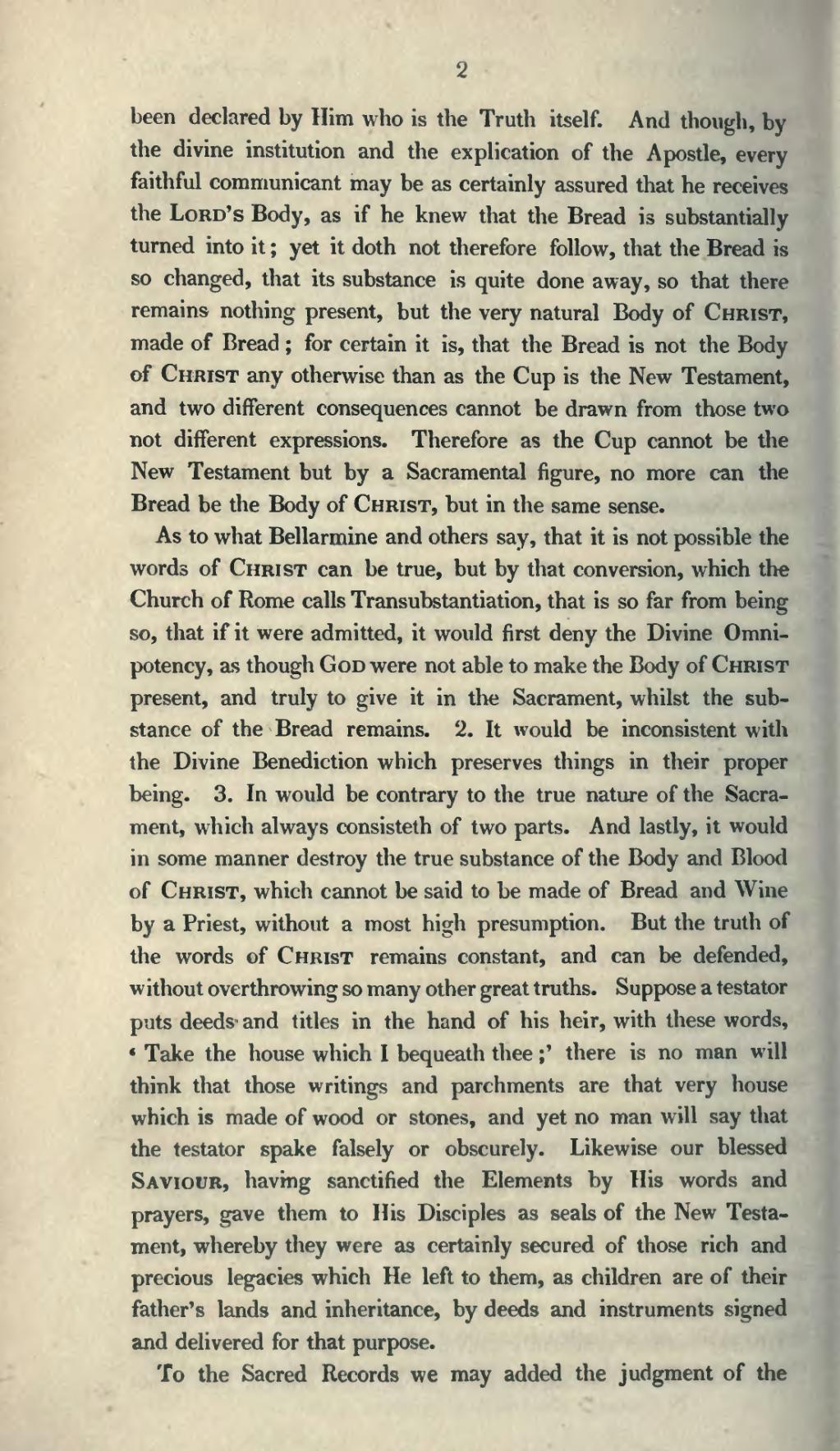2
been declared by Him who is the Truth itself. And though, by the divine institution and the explication of the Apostle, every faithful communicant may be as certainly assured that he receives the Lord's Body, as if he knew that the Bread is substantially turned into it; yet it doth not therefore follow, that the Bread is so changed, that its substance is quite done away, so that there remains nothing present, but the very natural Body of Christ, made of Bread; for certain it is, that the Bread is not the Body of Christ any otherwise than as the Cup is the New Testament, and two different consequences cannot be drawn from those two not different expressions. Therefore as the Cup cannot be the New Testament but by a Sacramental figure, no more can the Bread be the Body of Christ, but in the same sense.
As to what Bellarmine and others say, that it is not possible the words of Christ can be true, but by that conversion, which the Church of Rome calls Transubstantiation, that is so far from being so, that if it were admitted, it would first deny the Divine Omnipotency, as though God were not able to make the Body of Christ present, and truly to give it in the Sacrament, whilst the substance of the Bread remains. 2. It would be inconsistent with the Divine Benediction which preserves things in their proper being. 3. In would be contrary to the true nature of the Sacrament, which always consisteth of two parts. And lastly, it would in some manner destroy the true substance of the Body and Blood of Christ, which cannot be said to be made of Bread and Wine by a Priest, without a most high presumption. But the truth of the words of Christ remains constant, and can be defended, without overthrowing so many other great truths. Suppose a testator puts deeds and titles in the hand of his heir, with these words, 'Take the house which I bequeath thee;' there is no man will think that those writings and parchments are that very house which is made of wood or stones, and yet no man will say that the testator spake falsely or obscurely. Likewise our blessed Saviour, having sanctified the Elements by His words and prayers, gave them to His Disciples as seals of the New Testament, whereby they were as certainly secured of those rich and precious legacies which He left to them, as children are of their father's lands and inheritance, by deeds and instruments signed and delivered for that purpose.
To the Sacred Records we may added the judgment of the
